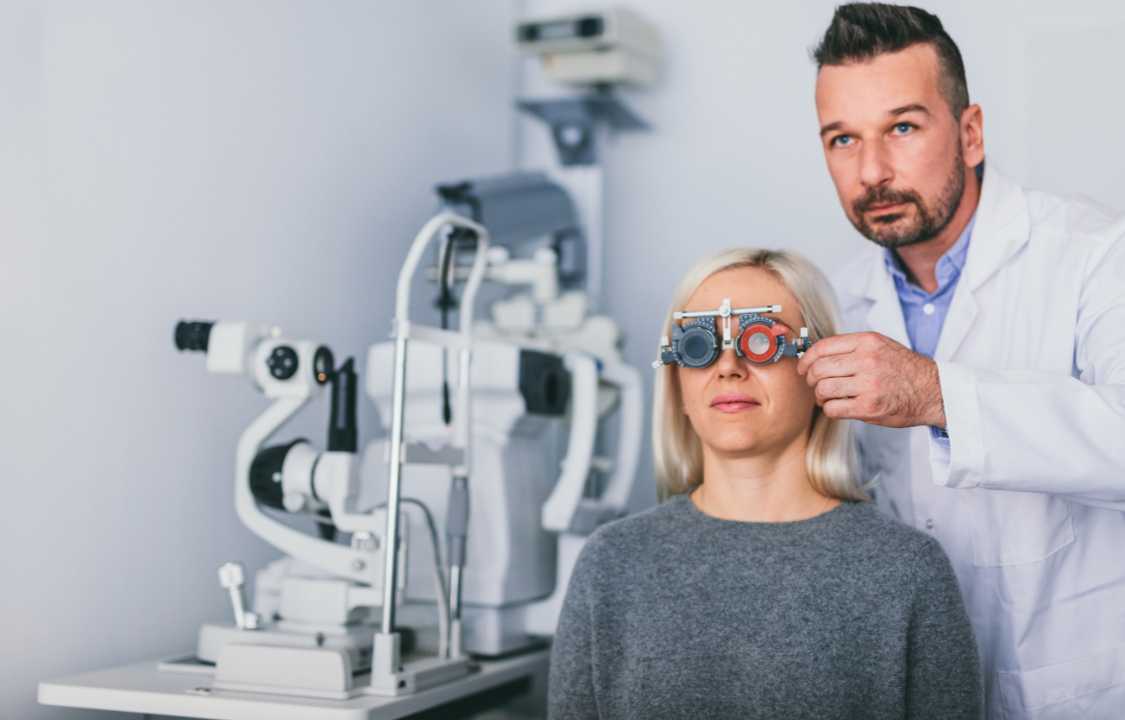Health Care
Prioritizing Eye Health: A Guide to Yearly Examinations
According to the World Health Organization, an astonishing one in every seven people worldwide faces the challenges of vision impairment, affecting a staggering 2.2 billion individuals. Shockingly, a billion of these cases could have been preventable or treated with timely interventions. The key to safeguarding your precious eyesight is embracing the proactive approach of yearly eye examinations.
Beyond routine checkups, these examinations are pivotal in preserving optimal eyesight, detecting and preventing vision changes early on, and providing comprehensive eye care. Discover the magic of nearby eye care services and take charge of your eye health today!
Why Do You Need Regular Eye Examinations?
Yearly eye examinations are more than just routine checkups; they’re proactive steps in safeguarding your eyesight.
Life can get busy, and eye checkups might slip off your radar. That’s where the magic of nearby eye care services, like the comprehensive glaucoma screening Round Rock clinic, comes in.
When you make it a habit to visit your nearby eye care professionals, you’re ensuring:
1. Optimal Eyesight
The most obvious benefit of regular eye exams is maintaining optimal eyesight. These exams help identify issues that may compromise your vision, and early intervention can prevent further deterioration. Your eyes are precious, and a yearly checkup is a simple yet effective way to ensure they stay in great shape.
2. Early Detection and Prevention of Vision Change
Eye exams can catch vision changes early, including conditions like nearsightedness, farsightedness, or astigmatism. When these issues are diagnosed promptly, they can often be corrected with prescription glasses or contact lenses. Additionally, eye exams can help detect eye diseases and conditions like glaucoma, cataracts, or diabetic retinopathy in their early stages, allowing for more effective treatment and management.
3. Comprehensive Eye Care
Comprehensive eye care goes beyond addressing immediate vision concerns. It includes evaluating the overall health of your eyes and identifying any underlying issues. It’s not just about addressing the symptoms; it’s about getting to the root of the problem and ensuring your eyes are in the best possible condition.
And, of course, nothing beats the peace of mind that comes from knowing you’re taking proactive steps toward maintaining good eye health.
What To Expect In A Comprehensive Eye Care
During your comprehensive eye care, optometrists or ophthalmologists will conduct various tests to examine your vision and general eye health:
Visual Acuity Test
At the outset of your comprehensive eye care journey, the assessment focuses on gauging your vision at different distances. You’ll be told to read numbers or letters on an eye chart to determine your visual clarity. If the results indicate concerns, the eye care professional will discuss the appropriate steps to address them. Some may include prescribing corrective lenses, suggesting lifestyle changes, or recommending further examinations.
Refraction Test
This test is a must for contact lens or glasses wearers. It’s all about nailing down your precise prescription, ensuring your vision is razor-sharp.
- Here’s how it goes: your eye care pro will skillfully tweak a series of lenses until your vision is at its absolute best. It’s like fine-tuning a camera lens but for your eyes.
When to take this test, you may ask. If you’ve been squinting or feeling like your prescription needs a refresh, that’s the time you may want to visit your ophthalmologist.
Eye Movement And Alignment Test
The eye care professional will examine your eye movements and alignment to ensure your eyes are in perfect sync. When your eyes are aligned and coordinated, you’ll have a seamless vision that feels effortless. No more eye twitches or struggles to focus—just smooth, coordinated eye movements that make life a breeze.
Slit Lamp Examination
It examines your eyes’ front structures: cornea, iris, and lens—the first line of defense for your vision. They protect your eyes from dust, dirt, and other particles that could damage them. They also help regulate the amount of light that enters your eyes, which is essential for maintaining good vision. Inspecting these structures precisely will ensure that each is in tip-top shape.
Dilated Eye Examination
Sometimes, your pupils may be dilated using eye drops to allow for a more thorough examination of the retina and optic nerve at the back of your eyes. It helps detect macular degeneration, diabetic retinopathy, and glaucoma.
Other Eye Care Services
Comprehensive eye care exams are an essential part of maintaining good eye health. But they’re not the only type of eye care service available.
Other eye care services are available to safeguard your vision and maintain healthy eyes, such as:
- Intraocular Pressure Test – Glaucoma can lead to vision loss if left untreated. With this test that measures the pressure inside your eyes, you can detect such a condition early on.
- Peripheral Vision Test – This evaluates your peripheral vision to check for any signs of visual field loss or certain eye conditions.
- Color Vision Test – If necessary, you can have this test to assess your ability to perceive different colors accurately.
- Prescription Updates Or Treatment Recommendations – Based on the findings of the eye checkup, the eye care provider may update your prescription for glasses or contact lenses if needed. They may also recommend further treatment or management options if any eye conditions are detected.
During these tests, the eye care professional will discuss the results of the examinations with you and provide insights into your eye health. Use this time to raise concerns or questions about your eyes or vision to ensure eye health.
Putting Your Eye Health First
Don’t let vision impairment become your reality. Get regular eye exams to keep your vision at its finest. Early detection and preventive care are vital to maintaining clear vision and healthy eyes for years. Don’t wait until it’s too late. Schedule your next eye exam today!

